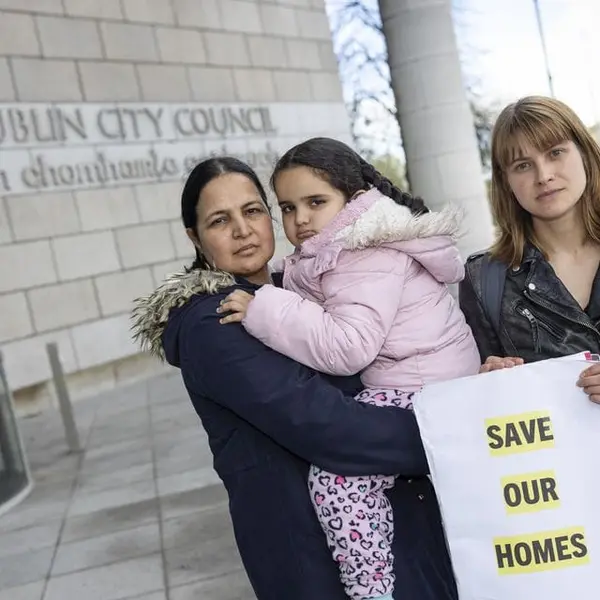
How To Be A Revolutionary Councillor
15 July 2025
I’m not just a councillor - I’m a professional revolutionary! What does it mean to be a revolutionary socialist and an elected representative? How do you work within a system that you want working class people to tear down?
These are really important questions for revolutionaries to ask themselves both when standing in elections, and if they are lucky enough to be elected. It can be extremely difficult for socialists to remain principled when there is constant pressure from both within the council or Dáil and from without, from constituents and others, to tone down your revolutionary ideas and to compromise with the establishment.
This has led to two wrong approaches.
The first is to effectively withdraw from the council, and the work associated with the council, in order to insulate yourself from the pressure to conform. This can isolate you from the working class and you’d just be seen as useless or not caring about key issues in the area. Even worse, some socialists don’t take part in elections at all for fear of getting sucked into electoralism.
But the question they’ve to ask themselves is: so when do you knock on doors as a socialist and openly explain your politics? It’s important to be involved in local campaigning but you also need to talk to people directly, as a socialist. Elections provide that opportunity.
The second wrong approach is to buckle under the pressure and become completely wrapped up in council work, whether that is case work or local work, and avoid doing political work. This is a slippery slope to opportunism.
Many socialists have ended up compromising on political principles in order to get results for their local area. This makes you no different than the establishment parties. For example, doing deals or engaging in horse-trading with the establishment for positions such as chairs of committees or Mayoral positions is not only unprincipled but will send a message to working class people that we are no different than the establishment.
You’re in there to do a job. As the great James Connolly once said: “The return of a Socialist candidate does not then mean the immediate realisation of even the programme of palliatives commonly set before the electors. Nay, such programmes are in themselves a mere secondary consideration, of little weight, indeed, apart from the spirit in which they will be interpreted. The election of a Socialist to any public body at present, is only valuable in so far as it is the return of a disturber of the political peace.”
Others on the left become so overwhelmed with council or parliamentary work that it becomes a never-ending cycle of essentially electioneering to win seats to electioneer to win seats. What is the point of standing in elections as a socialist if you end up in this endless cycle? You never promote socialism or help produce new worker leaders.
It also leaves you open to pressures to represent all classes on the basis of representing a “local area”. For example, when small business owners oppose improvements to a village centre because of the removal of a small number of car parking spaces, you will be under pressure to oppose a project that would ultimately be of benefit for working class people. You can’t just be a vote chaser.
Socialists have to be willing to take positions that are in the interest of the working class as a whole, not just go along with local opposition because as some would argue “we listen to the people”. You have to ask yourself what “people” do we listen to, and represent. The people are made up of classes. We represent the working class.
James Connolly said the following about a socialist candidate to the council in 1901:
“It has been said that the uncompromising working class position taken up by Mr McLoughlin, in conformity with his Socialist principles, will alienate many middle class voters, and so endanger his chances. But those who use this argument do not understand Mr McLoughlin’s position. He does not wish to crawl into the Corporation; he does not wish to creep in there; he does not wish to smuggle himself in there under false pretences. He wishes to go in standing erect on his own feet as a man should; compromising no principle, yielding no point of his programme; proud, conscientious and upright as a representative of the working class should be, and if he cannot enter the Corporation in that manner he is content to remain outside.”
Instead of the two wrong approaches I have outlined above, I would argue that a revolutionary councillor needs to do all the work that comes with being a councillor but in a different way. You have to attend the meetings, engage with strategic debates such as budgets and development plans and do individual case work. How you do this work though is very different from the establishment councillors.
All the time you attempt to do this work in a way that teaches workers about the nature of the state and the councils and exposes the class interests lying behind both council management and all the establishment politicians. For example, when I put down the motion for the council to Compulsory Purchase derelict properties the motion was voted down. This might be seen as a failure. It wasn’t if it enlightened our class.
It gave me the opportunity to show the working class that the majority of councillors represent the interests of landlords and speculators. The second time I put the same motion down it was passed, mainly because I had exposed those who voted against it previously. Your job as an elected revolutionary is not to make poeple think the council will improve their lives. We have to fight tooth and nail for anything we can get from this system.
Being elected by the people is a huge responsibility. When you’ve told the working class that you’re different from the others you need to show it in practice. When people contact you with an issue you have to do your best to help them, while also pointing out that the issue they have is caused by the system. This is not always easy to do, and most of the time, people just want your help because they are desperate.
If you don’t do your best to help people you will lose the trust of working class people who voted for you. Unfortunately, the Irish political system is built on clientelism. It has allowed Fianna Fáil and Fine Gael to rule in cahoots with the economic elite while pretending to care about constituents in their own local area. They will screw over the working class in the whole country to get a small thing for their own area, to ensure their re-election in the next election. It is the job of revolutionaries to reveal this to the working class. We must teach the working class to see the class interest behind every decision made in the council or the Dáil.
When people ask me what I do for a living, I hesitate to say I’m a politician, or a councillor. I spend more than half of my time doing work related to that, which means going to meetings, answering people’s queries (individual case work), door knocking and attending dozens of community events.
But I consider myself as a “professional revolutionary”. My main job is to work towards a working class, people power revolution against capitalism. As long as the same old establishment is in power they can roll back on any gains we make. We need to put the working class in the driving seat. That may seem radical but it’s basic democracy to say the people who break their backs creating all the wealth should decide what’s done with it.
Being a professional revolutionary means writing articles about politics, helping with internal organisation of my party, organising local and national campaigns and going on protests. It’s not easy to be a revolutionary councillor, but that’s why you need to be in a party. There you can raise issues that come up with members who can both help to decide how to vote or what to say, but also to hold you to account when you make mistakes.
The Red Network is an anchor that ties me to my principles and links me in with dozens of working class activists.
The change that working class people want, and need, will not come through the councils or the Dáil. The permanent bureaucracy that actually controls the state will fight tooth and nail against anything that challenges their economic and ruling elite. Socialist change will only come through the organising of working class people in our own democratic structures, or workers’ assemblies, in every workplace and community, electing delegates who are recallable and on the average wage to a national assembly that replaces the corrupt Dáil.
Only when workers are in power can we make real decisions about how society can be run to provide for everyone.
That is my goal, and while I will continue to fight each and every day to make things better in the here and now for the people who elected me (and those who didn’t), I will never forget that I work for the real interests of the working class and the final goal of socialism.
 RED NETWORK
RED NETWORK